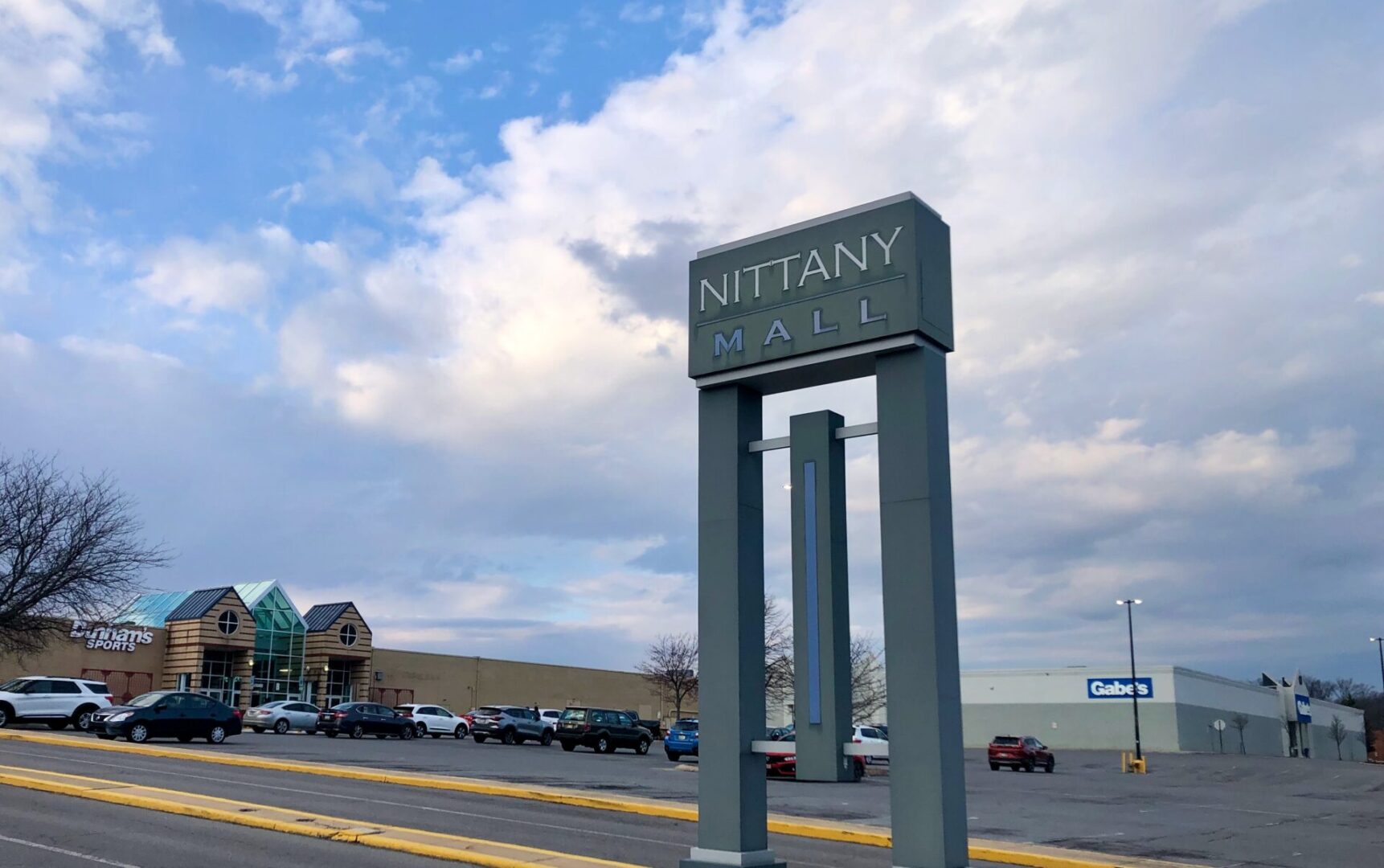With legal challenges to a license seemingly near an end, Bally’s Corporation is preparing to move forward with construction of a mini-casino at the Nittany Mall.
The company, which is the management corporation for the planned casino, is now aiming to start construction in the former Macy’s spot at the College Township mall next year, Bally’s President George Papanier said during a second quarter earnings conference call on Wednesday.
“Obviously, the lawsuits are behind us. We’re now focused on going through the process and obtaining the appropriate approvals with the [Pennsylvania Gaming Control Board],” Papanier said, according to transcripts of the call. “So we’re focused on that. And timing of construction probably won’t be until the first half of 2025 at this point.
“As part of that transaction, obviously, there’s a stage relative to arranging the financing for that. And so now that the court has ruled, we are now going through the whole developmental underwriting process and how we plan for that.”
The company did not provide any new information during the call about its recent announcement that it had accepted a $4.6 billion buyout from hedge fund Standard General, its largest shareholder. Under the agreement, Bally’s will merge with The Queen Casino & Entertainment, a regional casino operator that is majority-owned by Standard General.
Bally’s announced in January 2021 that it was partnering with investor and Penn State alumnus Ira Lubert on the Nittany Mall casino, five months after Lubert won an auction for Pennsylvania’s fifth category 4 casino license with a bid of $10 million.
Lubert, who was eligible for the license because of his ownership interest in Rivers Casino Pittsburgh, formed SC Gaming as the owner of the new casino and is the company’s sole member. The PGCB approved SC Gaming’s license application in January 2023, but it had already been the subject of a lawsuit by a competing casino company
Stadium Casino, the losing bidder at the 2020 auction, argued that though Lubert paid for the bid from his personal account, other parties who would not have been eligible to bid contributed to the funds, and that he had essentially created a “Trojan horse” for Bally’s to open a casino. The PGCB, Stadium contended, did not have the authority to consider the bid and should have awarded it to stadium or held another auction.
The Pennsylvania Supreme Court rejected Stadium’s challenge in July and upheld the license approval. It remains unclear if Stadium plans to appeal. An attorney for the company did not respond to a request for comment and a motion to reconsider has not been filed, according to the case docket.

WHAT’S PLANNED
Bally’s previously projected cost of the Nittany Mall casino project at about $130 million and estimated that permitting and construction would take about a year to complete. College Township has already approved a land development plan for the project.
According to plans detailed at an August 2021 public hearing, the casino in the 94,000-square-foot anchor spot at the mall will operate 24 hours a day, seven days a week. It will have 750 slot machines, 30 table games and sports betting along with a sports-themed restaurant and bar with an entertainment stage and a multi-outlet quick-serve food court.
The casino would have two exterior public entrances and one from inside the mall and would only be open to individuals age 21 and older, including for the restaurant and food court. ID scanning will be employed at each entrance.
The casino is expected to employ 350 to 400 full-time equivalent positions, offering a “very competitive compensation and benefits package,” Eric Pearson, the expected general manager, said at the hearing.
An local impact report prepared by a third party for SC Gaming projects $121.6 million in direct and indirect annual economic impact within the College Township economy. In Centre County, the study estimates $164 million annual economic impact, supporting 740 jobs.
Host municipalities and counties receive 2% of a casino’s slot machine revenue and 1% of table game and sports book revenues. The impact study estimates the gaming revenues and taxes would yield $1.6 million for College Township in the first year of operation and $2 million at stabilization.
That money comes from state’s overall collection of a casino’s gaming taxes, which includes a 54% tax on slot machine revenues. Owners of 12 Pennsylvania casinos recently filed a lawsuit to either tax skill games — which are currently untaxed and unregulated — at the same rate as slot machines, lower the slot machine tax or remove it altogether.
While supporters of the Nittany Mall casino have touted its economic benefits and revitalization possibilities for the shopping center. Opponents have questioned the accuracy of the economic impact report and, more vocally, raised concerns about gambling addiction, particularly given the proximity to Penn State, and stress on local services.
About 3,300 people signed a hard copy petition and online petition against the casino.



